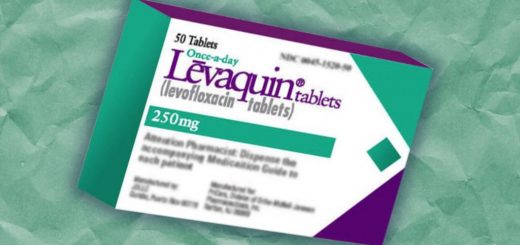Prednisolone

Prednisolone is a medication that belongs to the class of corticosteroids. It is used to treat a variety of conditions, including allergies, asthma, arthritis, and certain types of cancer. Prednisolone works by reducing inflammation and suppressing the immune system. Prednisolone is available in several forms, including tablets, capsules, and liquid. The dosage and duration of treatment depend on the condition being treated and the patient’s response to the medication. It is important to follow the doctor’s instructions carefully when taking prednisolone. One of the most common uses of prednisolone is to treat allergies. It can help relieve symptoms such as itching, swelling, and redness. Prednisolone is also used to treat asthma, a condition in which the airways become inflamed and narrow, making it difficult to breathe. It can help reduce inflammation in the airways and improve breathing. Prednisolone is also used to treat arthritis, a condition in which the joints become inflamed and painful. It can help reduce inflammation and relieve pain. In addition, prednisolone is used to treat certain types of cancer, such as leukemia and lymphoma. It can help reduce inflammation and suppress the immune system, which can slow the growth of cancer cells. Like all medications, prednisolone can cause side effects. Common side effects include increased appetite, weight gain, and difficulty sleeping. Other side effects may include mood changes, high blood pressure, and increased risk of infection. It is important to talk to the doctor about any side effects that occur while taking prednisolone. In conclusion, prednisolone is a medication that is used to treat a variety of conditions, including allergies, asthma, arthritis, and certain types of cancer. It works by reducing inflammation and suppressing the immune system. While it can be effective in treating these conditions, it can also cause side effects. It is important to follow the doctor’s instructions carefully when taking prednisolone and to report any side effects that occur.
Important information prednisolone
Prednisolone is a medication that belongs to the class of corticosteroids. It is used to treat a variety of conditions, including allergies, asthma, arthritis, and certain types of cancer. Prednisolone works by reducing inflammation and suppressing the immune system. Important Information:
- Prednisolone should be taken exactly as prescribed by your doctor. Do not take more or less than the recommended dose, and do not stop taking the medication without consulting your doctor.
- Prednisolone can cause a number of side effects, including increased appetite, weight gain, mood changes, and difficulty sleeping. If you experience any of these side effects, talk to your doctor.
- Prednisolone can also weaken the immune system, making you more susceptible to infections. If you develop any signs of infection, such as fever, chills, or sore throat, contact your doctor immediately.
- Prednisolone can interact with other medications, including blood thinners, diabetes medications, and certain antibiotics. Be sure to tell your doctor about all medications you are taking before starting prednisolone.
- Prednisolone should not be taken by pregnant women or women who are breastfeeding, as it can harm the developing fetus or infant.
- Prednisolone can also increase the risk of osteoporosis, especially in women. If you are taking prednisolone for a long period of time, your doctor may recommend regular bone density tests.
- Prednisolone can also increase blood sugar levels, which can be a problem for people with diabetes. If you have diabetes, your doctor may need to adjust your medication while you are taking prednisolone. In conclusion, prednisolone is a powerful medication that can be very effective in treating a variety of conditions. However, it is important to take it exactly as prescribed and to be aware of the potential side effects and interactions with other medications. If you have any questions or concerns about prednisolone, be sure to talk to your doctor.

Before taking this medicine prednisolone
Before taking prednisolone, it is important to understand what it is, how it works, and what potential side effects may occur. Prednisolone is a type of steroid medication that is used to treat a variety of conditions, including inflammation, allergies, and autoimmune disorders. It works by reducing inflammation and suppressing the immune system. Before taking prednisolone, it is important to inform your doctor of any medical conditions you may have, including diabetes, high blood pressure, or a history of stomach ulcers. You should also inform your doctor of any medications you are currently taking, including over-the-counter medications and supplements. It is important to take prednisolone exactly as prescribed by your doctor. Do not take more or less than the prescribed dose, and do not stop taking the medication without first consulting your doctor. Abruptly stopping prednisolone can cause withdrawal symptoms, including fatigue, weakness, and joint pain. Prednisolone can cause a number of side effects, including weight gain, mood changes, and increased appetite. It can also increase the risk of infections and may cause bone thinning or osteoporosis with long-term use. It is important to discuss any potential side effects with your doctor before starting treatment with prednisolone. In conclusion, before taking prednisolone, it is important to understand what it is, how it works, and what potential side effects may occur. It is important to inform your doctor of any medical conditions or medications you are currently taking, and to take the medication exactly as prescribed. If you experience any side effects or have any concerns about taking prednisolone, be sure to discuss them with your doctor.
How should I take prednisolone
Prednisolone is a medication that is used to treat a variety of conditions, including allergies, asthma, arthritis, and certain types of cancer. It is a type of steroid that works by reducing inflammation in the body. If you are prescribed prednisolone, it is important to take it as directed by your doctor. However, if you miss a dose, there are some things you should know. First, it is important to understand that missing a dose of prednisolone can have different effects depending on the condition being treated and the dosage of the medication. In general, missing a single dose is unlikely to cause any serious harm. However, if you miss several doses or stop taking the medication altogether, it can lead to a flare-up of your symptoms. For example, if you are taking prednisolone to treat asthma, missing a dose can make it more difficult to breathe and increase your risk of an asthma attack. If you are taking prednisolone to treat arthritis, missing a dose can cause joint pain and stiffness to return. If you are taking prednisolone to treat a skin condition, missing a dose can cause itching, redness, and inflammation to worsen. If you do miss a dose of prednisolone, the best thing to do is to take it as soon as you remember. However, if it is almost time for your next dose, skip the missed dose and continue with your regular dosing schedule. Do not take a double dose to make up for the missed one. It is also important to talk to your doctor if you miss a dose of prednisolone. They may recommend adjusting your dosing schedule or prescribing a different medication if you are having trouble remembering to take your medication as directed. In conclusion, missing a dose of prednisolone is unlikely to cause any serious harm, but it can lead to a flare-up of your symptoms if you miss several doses or stop taking the medication altogether. If you do miss a dose, take it as soon as you remember, but do not take a double dose to make up for the missed one. Talk to your doctor if you are having trouble remembering to take your medication as directed.
What happens if I overdose? prednisolone
prednisolone is a medication that is commonly used to treat high blood pressure, heart failure, and other cardiovascular conditions. While it is generally safe and effective when taken as prescribed, an overdose of prednisolone can be dangerous and potentially life-threatening. An overdose of prednisolone can occur if you take more than the recommended dose or if you take it more frequently than prescribed. It can also occur if you accidentally take someone else’s medication or if you mix prednisolone with other drugs or alcohol. The symptoms of a prednisolone overdose can vary depending on the amount of the drug that was taken and the individual’s overall health. Some common symptoms of an overdose may include:- Dizziness or lightheadedness – Fainting or loss of consciousness – Rapid or irregular heartbeat – Difficulty breathing – Seizures – Confusion or disorientation – Nausea or vomiting – Sweating or flushing – Muscle weakness or crampsIf you suspect that you or someone else has overdosed on prednisolone, it is important to seek medical attention immediately. Call or your local emergency services, or go to the nearest emergency room Treatment for a prednisolone overdose will depend on the severity of the symptoms and the amount of the drug that was taken. In some cases, the individual may need to have their stomach pumped to remove any remaining medication. They may also receive medications to help control their blood pressure and heart rate, as well as oxygen therapy to help with breathing. In severe cases, an overdose of prednisolone can lead to serious complications such as kidney failure, heart attack, or stroke. It is important to take prednisolone only as prescribed and to never exceed the recommended dose. If you are taking prednisolone and are concerned about the risk of overdose, talk to your healthcare provider. They can provide you with information on how to take the medication safely and what to do in the event of an overdose. In conclusion, an overdose of prednisolone can be dangerous and potentially life-threatening. If you suspect that you or someone else has overdosed on this medication, seek medical attention immediately. It is important to take prednisolone only as prescribed and to never exceed the recommended dose.
What should I avoid? prednisolone
Prednisolone is a medication that is used to treat a variety of conditions, including inflammation, allergies, and autoimmune disorders. While it can be an effective treatment, it is important to take it as prescribed and not to overdose on the medication. Overdosing on prednisolone can have serious consequences, including potentially life-threatening complications. The symptoms of a prednisolone overdose can vary depending on the amount of medication taken and the individual’s overall health. Some common symptoms of an overdose may include:- Nausea and vomiting – Dizziness or lightheadedness – Headache – Confusion or disorientation – Rapid heartbeat – High blood pressure – Difficulty breathing – Seizures – ComaIf you suspect that you or someone you know has overdosed on prednisolone, it is important to seek medical attention immediately. Call your local emergency services or go to the nearest emergency room. Treatment for a prednisolone overdose may include supportive care, such as monitoring vital signs and providing oxygen or intravenous fluids. In some cases, medications may be given to help reverse the effects of the overdose. It is important to note that taking more prednisolone than prescribed can also increase the risk of side effects, even if it does not result in an overdose. Some common side effects of prednisolone include:- Increased appetite and weight gain – Mood changes, such as irritability or anxiety – Difficulty sleeping – Acne or other skin changes – Increased risk of infections – High blood sugar levels – Osteoporosis or bone loss – Cataracts or glaucomaTo minimize the risk of side effects and overdose, it is important to take prednisolone exactly as prescribed by your healthcare provider. Do not take more or less of the medication than recommended, and do not stop taking it without first consulting your doctor. If you have any questions or concerns about your medication, talk to your healthcare provider. In conclusion, overdosing on prednisolone can have serious consequences and should be avoided. If you suspect that you or someone you know has overdosed on prednisolone, seek medical attention immediately. To minimize the risk of overdose and side effects, take prednisolone as prescribed by your healthcare provider and follow their instructions carefully.
What should I avoid? prednisolone
Prednisolone is a type of steroid medication that is commonly used to treat a variety of medical conditions, including inflammation, allergies, and autoimmune disorders. While it can be an effective treatment option, there are certain things that you should avoid when taking prednisolone.
- One of the most important things to avoid when taking prednisolone is alcohol. This is because both prednisolone and alcohol can cause damage to the liver, and when taken together, the risk of liver damage is increased. Additionally, alcohol can interfere with the effectiveness of prednisolone, making it less effective in treating your medical condition.
- Another thing to avoid when taking prednisolone is grapefruit. Grapefruit contains a compound that can interfere with the way your body metabolizes prednisolone, which can lead to higher levels of the medication in your bloodstream. This can increase the risk of side effects, such as high blood pressure, fluid retention, and mood changes.
- Other medicationsIt is important to talk to your doctor or pharmacist before taking any other medications while on prednisolone. This is because prednisolone can interact with other medications, including over-the-counter medications, herbal supplements, and prescription medications. Some medications can increase the risk of side effects, while others can reduce the effectiveness of prednisolone.
- Prednisolone can weaken your immune system, making you more susceptible to infections. It is important to avoid contact with people who have contagious illnesses, such as the flu or chickenpox, while taking prednisolone. If you do develop an infection while on prednisolone, it is important to seek medical attention right away.
- Finally, it is important to avoid abruptly stopping prednisolone without first talking to your doctor. This is because prednisolone can cause withdrawal symptoms, such as fatigue, muscle weakness, and joint pain, if it is stopped suddenly. Your doctor will work with you to gradually reduce your dose of prednisolone over time to minimize the risk of withdrawal symptoms. In conclusion, while prednisolone can be an effective treatment option for a variety of medical conditions, there are certain things that you should avoid when taking this medication. By following your doctor’s instructions and avoiding alcohol, grapefruit, other medications, infections, and abruptly stopping prednisolone, you can help ensure that you get the most benefit from this medication while minimizing the risk of side effects.
Prednisolone side effects
Prednisolone is a medication that is commonly used to treat a variety of conditions, including allergies, asthma, and autoimmune disorders. While it can be an effective treatment option, it is important to be aware of the potential side effects that can occur with its use. One of the most common side effects of prednisolone is weight gain. This is due to the medication’s ability to increase appetite and cause fluid retention. Patients may also experience mood changes, such as irritability or depression, as well as difficulty sleeping. Prednisolone can also cause gastrointestinal side effects, such as nausea, vomiting, and stomach pain. Patients may also experience an increased risk of infections, as the medication can suppress the immune system. Long-term use of prednisolone can lead to more serious side effects, such as osteoporosis, high blood pressure, and diabetes. Patients who are taking prednisolone for an extended period of time should be closely monitored by their healthcare provider to ensure that these side effects are not developing. In rare cases, prednisolone can cause serious allergic reactions, such as swelling of the face, tongue, or throat, difficulty breathing, and hives. Patients who experience these symptoms should seek medical attention immediately. It is important to note that not all patients will experience side effects with prednisolone, and the severity of side effects can vary from person to person. Patients who are prescribed prednisolone should discuss any concerns or questions with their healthcare provider. In conclusion, while prednisolone can be an effective treatment option for a variety of conditions, it is important to be aware of the potential side effects that can occur with its use. Patients should be closely monitored by their healthcare provider and report any new or worsening symptoms.







